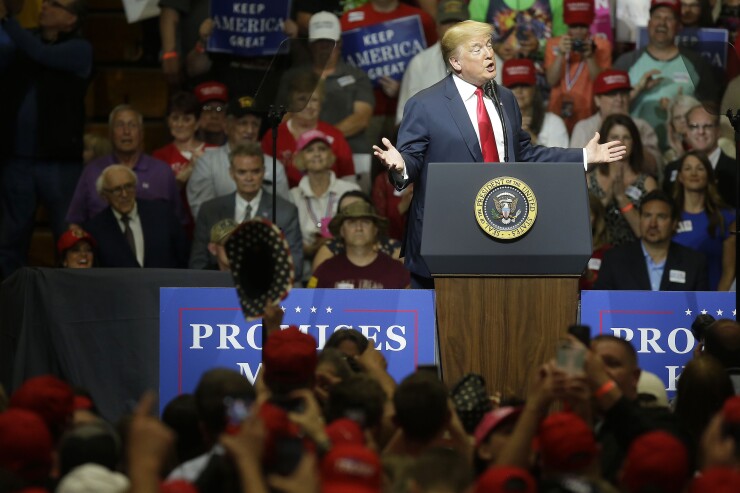Freelance payment companies are taking advantage of the Trump administration's immigration policies, which are starting to drive more work to freelancers in the U.S. and overseas.
The New York-based Transpay, for example, reports U.S. outbound cross-border transactions it processed increased 93% in the first quarter of 2018, while total transaction value increased 43%. The increase stems from the growth to new enterprise technology and the proliferation of freelance marketplaces in the expanding digital economy—and, arguably, to the regulation of H-1B visas.

H-1B visas are under fire on several fronts that could lead companies to hire more workers for one-off tasks, rather than offer full-time employment to a worker who moves to the U.S.
"It's an opportunity for our customer base, and could have an impact even beyond freelancers," said Peter Shore, a general manager at Transpay. "Because of this, we could see freelance extend to jobs beyond the traditional work like graphic artists and writers."
H-1B is a complicated law that governs how U.S. companies sponsor immigration for people with specialized skills from other countries, covering industries such as technology, chemistry, engineering, journalism, health care, education, law, the arts and other high-tech or high-education jobs. Despite the range of occupations in play, most H-1B visa holders are from
H-1B visa holders usually must have a bachelor's degree or equivalent, and can work only for the sponsor employer while in the U.S. The visas typically last three years before the worker must apply again.
Trump's position since his campaign has been to tighten immigration into the U.S. Most of that focus has gone toward
As fewer companies consider H-1B applicants, "most likely these companies will go toward 'gig economies.' That's the next best option," said Rob Israch, chief marketing officer at Tipalti, a Palo Alto, Calif.-based company that specializes in international contractor payments and compliance.
Tipalti hopes to get an additional boost from the shift to freelance workers. The company recently received
"That's what we do, we help with the 1099 forms," Israch said. "As there is more demand for 'gig economy' workers, there will be more demand for gig economy services."
The argument for tighter restrictions on H-1B visas
Partly as a result of this political pressure,
So far, Trump has not made a tangible move against the program—for example, he hasn't lowered the 85,000 cap; though a
"There are a lot of people who sell specialized services for the tech industry, and that market is expanding," Shore said. "And if there's restricted access to hire these people outright, there will be a more freelance model."





